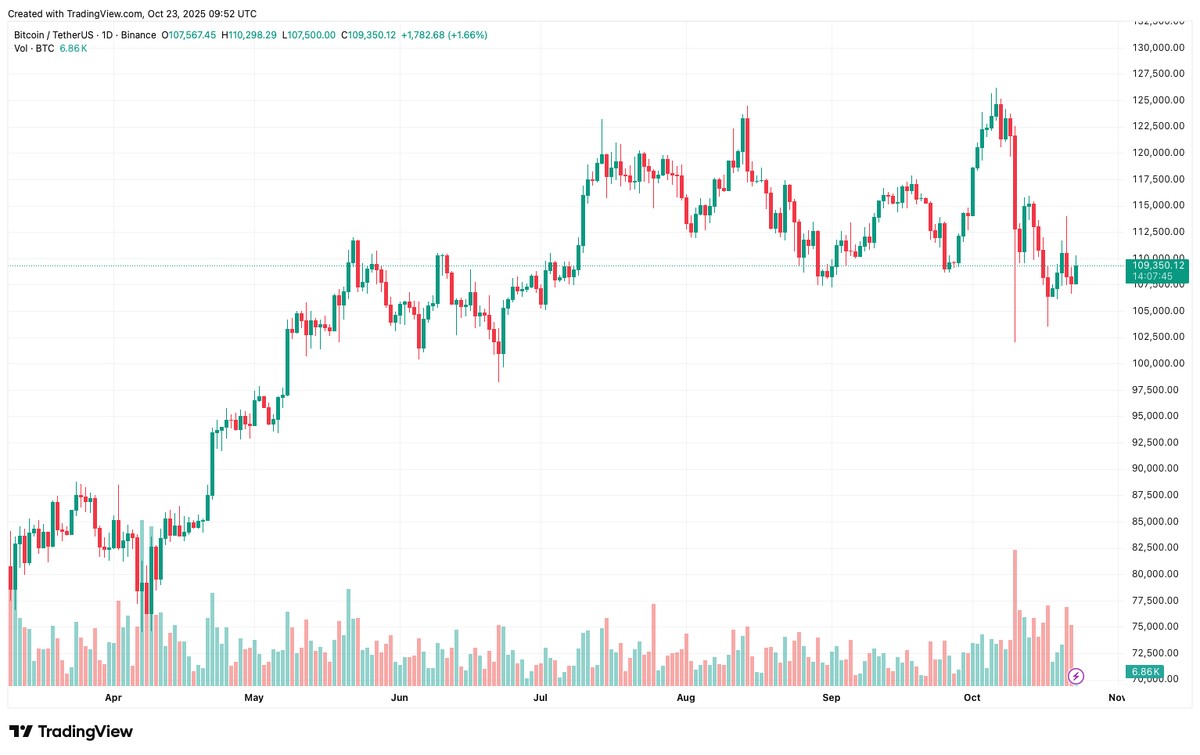Bitcoin loses its independence: Why are giant investors flocking to spot crypto ETFs?
The era of owning Bitcoin entirely in self-custody may be ending. Wealthy investors are increasingly shifting assets into regulated spot crypto exchange-traded funds, drawn by tax incentives and improving institutional infrastructure. For many BTC enthusiasts, this shift feels like the currency is no longer a standalone store of value, but a resource managed by big financial firms. Experts say the change marks a turning point toward a more regulated, institution-friendly pathway for Bitcoin ownership.

In This Article:
A dramatic shift: Billions moved from wallets to issuer-held BTC via spot ETFs
Martin Hisbeck, head of research at Uphold, says that moving Bitcoin to the wallets of ETF issuers marks the first significant reduction in self-custody in more than fifteen years. BlackRock's spot-BTC product IBIT leads the way; the firm’s digital assets leadership notes that the instrument has already unlocked more than $3 billion of Bitcoin from large holders. Many early investors now prefer the convenience of managing assets through trusted financial institutions, while still seeking to benefit from Bitcoin's price movements.

Regulatory unlock: In-kind creation and redemption
A recent SEC rule change allows in-kind creation and redemption of spot Bitcoin ETFs, enabling direct exchanges of Bitcoin for fund shares without taxable sales. This structure offers tax advantages: traditional cash ETFs incur taxable capital gains when shares are redeemed, which are passed through to investors. In-kind redemption lets funds deliver actual Bitcoin instead of cash, avoiding tax events and shielding investors from a shared tax burden.

Australia's crypto regret and the broader adoption trend
A Swyftx survey of 3,009 Australians finds that more than 40% of Gen Z and millennial respondents regret not investing in cryptocurrency ten years ago, calling it one of the decade's biggest missed opportunities. Nearly half of respondents under 35 regret missing the crypto moonshot; the second most common regret is passing on real estate and shares in big tech companies like Apple and Amazon. The sentiment also reflects growing institutional and governmental buying of Bitcoin and Ethereum, and the sense that younger generations are priced out of housing in Australia, which ranks sixth in the world for housing costs. The study notes that 78% of Australian crypto users reported profits in the last year, helped by new market highs, and 80% of those under 50 regret past investment decisions. In March, the Australian government introduced a new regulatory framework for crypto exchanges under existing financial services laws, signaling steps toward broader adoption of digital assets.

A maturing market: From retail bets to regulated wealth management
Overall, the crypto market is maturing: retail traders are yielding ground to large funds and regulated structures, while younger generations begin to view Bitcoin not as a challenge to the system but as a tool for wealth accumulation. Analysts say the future will depend on how investor protections and market regulation are designed and enforced by governments. If the trend continues, Bitcoin could become a mainstream building block for personal wealth, even as the idea of true independence remains a core part of its story.


